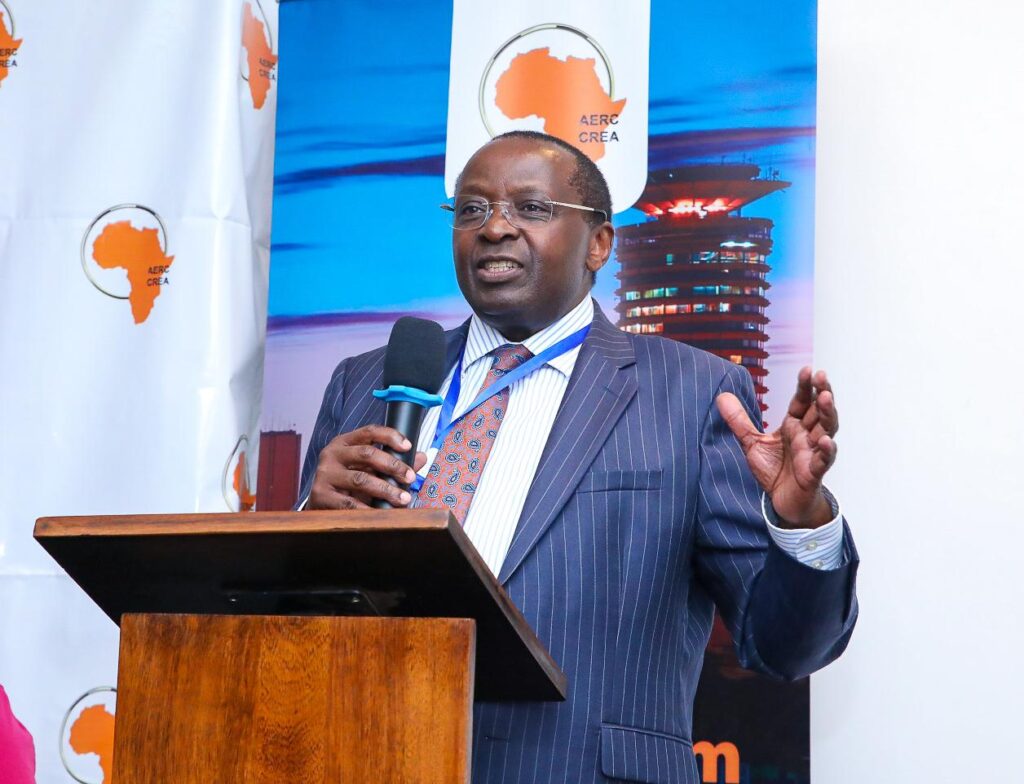The African Economic Research Consortium (AERC), in partnership with the Central Bank of Kenya (CBK), announced that the 61st Biannual Plenary Session focusing on the FinTech Revolution in Africa is now scheduled for December 1 2024, at Glee Hotel in Nairobi, Kenya.
AERC is a leader in policy-oriented economic research on the continent, and its biannual research workshops have become the largest gatherings of professional economists in sub-Saharan Africa.
This year’s theme, “The FinTech Revolution in Africa,” reflects the continent’s pivotal role in driving global financial innovation and highlights its potential for inclusive growth and economic transformation.
The event will be officially opened by CBK Governor Dr. Kamau Thugge, underscoring the importance of central bank leadership in navigating Africa’s financial technology landscape.
Last June, professional services firm BDO, in a report titled Unlocked Potential Fintech In Africa, noted that Africa’s Fintech market – led by South Africa, Nigeria, Egypt, and Kenya – is projected to grow thirteenfold to US$65 billion by 2030and will have a projected compound annual growth rate (CAGR) of 32 percent.
The report disclosed that leading the charge is ‘mobile money’, the continent’s ubiquitous solution for the unbanked, enabling seamless transfers and payments. Alongside this powerhouse, lending platforms are leveraging alternative data to offer microloans and other financial products to previously underserved populations.
Speaking when he confirmed the hosting plans, AERC Executive Director Prof. Victor Murinde said one of the key highlights of the 61st Biannual Plenary Session will be the high-level Practitioners Round Table hosted in partnership with the Kenya Bankers Association (KBA).
This forum will bring together frontrunners in FinTech development across East Africa to discuss the banking sector’s strategic embrace of FinTech as a neo-investment line.
“This session will provide an invaluable platform for commercial banking leaders to share their successes and lessons learned in navigating structural challenges and seizing untapped opportunities.”
“Through their insights, we can explore how digital transformation, strategic partnerships, and an enabling regulatory environment continue to deepen financial inclusion and add value to economies across the region,” Prof Murinde said.
Another notable feature is the Central Bank Governors Forum on the theme “Central Bank Digital Currencies: Where Are We?” This session will engage central bank governors from across Africa in exploring the evolution and adoption of central bank digital currencies (CBDCs).
Discussions will cover how CBDCs can address pressing economic challenges, enhance financial inclusion, improve local and cross-border payments, and ensure monetary sovereignty amidst the rise of cryptocurrencies.
While countries like Nigeria, South Africa, and Ghana lead the way with tangible initiatives, others, including Morocco, Egypt, and Kenya, are in the exploratory phases.
The forum will provide practical insights into the opportunities, challenges, and innovative solutions—such as regional CBDC collaborations and public-private partnerships—that could accelerate adoption across the continent.
The plenary will also feature keynote addresses, cutting-edge research presentations, and interactive panels addressing sub-themes like regulatory frameworks, the role of AI in financial services, and FinTech’s contribution to climate resilience.
These discussions will bring together world-leading scholars, policymakers, and practitioners in the fields of FinTech and financial services to explore innovative approaches to fostering financial stability and sustainable development.
Zimbabwe Coach Complains Of Congested Football Calendar And Impact On The Sport

